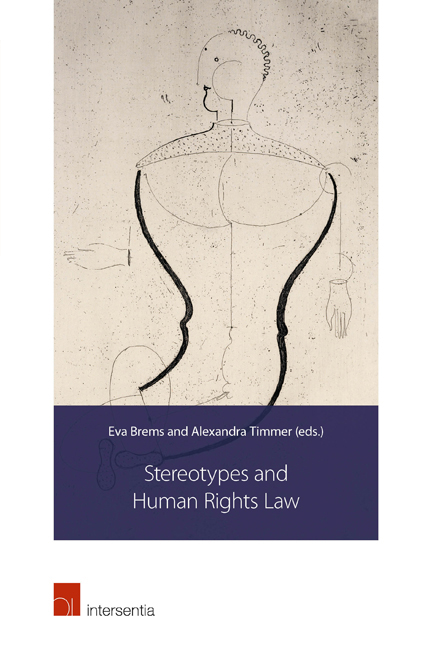Book contents
- Frontmatter
- Contents
- Introduction
- Building Momentum Towards Change. How the UN's Response to Stereotyping is Evolving
- Gender Stereotyping in Domestic Violence Cases. An Analysis of the European Court of Human Rights’ Jurisprudence
- Gender Stereotyping in the Case Law of the Inter‑American Court of Human Rights
- ‘My Sense of Humanity Has Gone Down the Drain’. Stereotypes, Stigma and Sanism
- Racial Stereotypes and Human Rights
- The Head of the Woman is the Man. The Failure to Address Gender Stereotypes in the Legal Procedures around the Dutch SGP
- Gender Stereotyping in the Military. Insights From Court Cases
Gender Stereotyping in the Case Law of the Inter‑American Court of Human Rights
Published online by Cambridge University Press: 22 December 2017
- Frontmatter
- Contents
- Introduction
- Building Momentum Towards Change. How the UN's Response to Stereotyping is Evolving
- Gender Stereotyping in Domestic Violence Cases. An Analysis of the European Court of Human Rights’ Jurisprudence
- Gender Stereotyping in the Case Law of the Inter‑American Court of Human Rights
- ‘My Sense of Humanity Has Gone Down the Drain’. Stereotypes, Stigma and Sanism
- Racial Stereotypes and Human Rights
- The Head of the Woman is the Man. The Failure to Address Gender Stereotypes in the Legal Procedures around the Dutch SGP
- Gender Stereotyping in the Military. Insights From Court Cases
Summary
This chapter reviews the case law of the Inter-American Court of Human Rights (the Inter-American Court or the Court) on gender stereotyping. The text begins with a brief introduction to the inter-American human rights system. The following sections concentrate on the flagship cases of the jurisprudence of the Court on stereotyping, Gonzalez (‘Cotton Field’) Case v Mexico and the case of Atala Riffo and Daughters v Chile, to show how these rulings are representative of the Court's approach to the issue of stereotyping, and more generally, of its conception of equality – and gender equality – as substantive and transformative. The strong concern of the Court regarding structural patterns of discrimination results in an analysis of individual human rights violations that is enriched by an understanding of those cases as instances of more pervasive situations of subordination, exclusion and violence. Through its rulings, the Court seeks not only to redress the individual victims of the cases, but also to improve the underlying conditions that made the rights violations possible, and to generate an institutional and cultural environment that would prevent those violations from happening again. In particular, the mission assumed by the Court of debunking gender stereotypes through adjudication is fraught with difficulties. The last part of the text refers to some challenges the Court has confronted or may confront in the future which deserve attention from human rights scholars and activists.
THE INTER-AMERICAN HUMAN RIGHTS SYSTEM
The inter-American human rights system is the regional mechanism for the protection of human rights in the Americas. It includes the Inter-American Commission on Human Rights (the Inter-American Commission or the Commission) and the Inter-American Court. The Commission, an autonomous organ of the Organization of American States (OAS), promotes and protects human rights and serves as a consultative organ of the OAS on human rights issues. The Commission monitors the human rights situation in member states by making country visits and issuing thematic or country reports. It also has a quasi-judicial function, as it processes and analyses individual petitions regarding human rights violations, supervises friendly settlements, issues recommendations to states, intervenes in urgent cases by adopting precautionary measures, and takes cases to the Court.
- Type
- Chapter
- Information
- Stereotypes and Human Rights Law , pp. 67 - 94Publisher: IntersentiaPrint publication year: 2016
- 1
- Cited by

